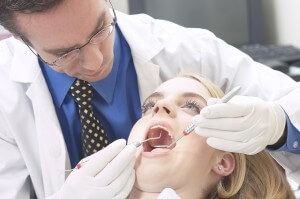A Preview of Pulp Disease
By Jill Feilmeier on September 12, 2013 in Dental Health

No, we aren’t talking about orange juice. Each one of your teeth has a lifeline, and that line is the pulp, or root, of your tooth. It is in this space that the blood vessels and nerves feed the health of your teeth. Since the pulp contains intricate pathways, dentistry has a specialty – endodontics – that focuses on the biology of the tooth root.
The pulp nourishes the surrounding dentin via specialized cells called odontoblasts. These cells also relay sensory information, which is why injury or damage near the pulp evokes pain.
Types of Pulp Damage
The pulp can be damaged in a number of ways. Among the most common are undetected tooth decay and advanced periodontal disease. Abrasion and erosion also can wear away the tooth's hard outer layers, leaving the pulp vulnerable. And of course pulp trauma occurs when a tooth is broken or knocked loose.
Pulp damage is categorized as either reversible or irreversible. Its consequences can range from mild tooth sensitivity to complete nerve death of the tooth or even infection of the surrounding tissues. Symptoms vary according to the extent of the damage and can include pain, fever, prolonged sensitivity to hot or cold, swelling or tenderness of the gums, and cracked or discolored teeth.
Hypersensitivity
Although tooth sensitivity is a hallmark of pulp injury, hypersensitivity does not automatically mean that the pulp is damaged. It's a signal that the dentin has been exposed, allowing sensations of heat, cold, and irritation to reach the tooth's nerves.
To reduce sensitivity, you might try one of the many types of toothpaste made for sensitive teeth. The effects of these products accrue over time, so it may take several brushings before you feel any relief. Also, active ingredients vary from brand to brand, so if one brand isn’t helpful, try another.
If the discomfort is extremely bothersome, ask your dentist what your options are.
Pulpitis
Pulpitis is an umbrella term for all forms of pulp inflammation. The pulp may be irritated by decay in the nearby dentin or by periodontal disease. Often pulpitis is reversible. In some cases, a natural coating of dentin will form over the pulp to shield it from the irritant, and the nerve will recover without treatment.
Pulpitis can become quite serious but the best idea is to take your dentist's advice. He or she will be able to offer you a healthy recovery plan.
Your dental health is just as important as your overall health. Once you know what risks are associated with a lack of dental care, you can begin to learn how to avoid them.
Have you ever had a pulp disease? Let us know in the comments.